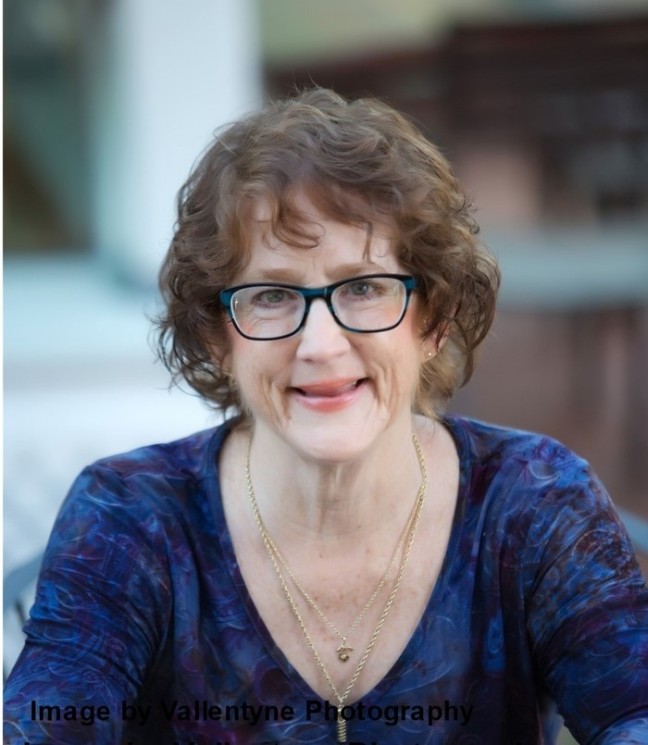
DEBORAH RANEY’s first novel, A Vow to Cherish, inspired the World Wide Pictures film of the same title and launched Deb’s writing career. Twenty years, thirty books, and numerous awards later, she’s still creating stories that touch hearts and lives. She and husband, Ken, traded small-town life in Kansas for life in the friendly city of Wichita. They love traveling to visit four grown children and a growing brood of grandchildren who all live much too far away. Find out more about Deb’s newest release—Home at Last, the fifth and final novel in her award-winning Chicory Inn Novels series—at her website: www.deborahraney.com

Looking back, who influenced you the most to read books?
First of all, my mother. Not only did she set a great example by being an avid reader herself, but we loved sharing books and talking about books, and even reading to each other—not just when I was a child, but even after I was grown and living away from home. In a roundabout way, my kids influenced me to read as well, because I always wanted to be aware of what they were reading in school or in their leisure time. And my husband gets a shout-out for never making me feel guilty while I was engrossed in a novel—even if it meant supper was late…or burned! :}
That sounds like a wonderful surrounding to be in!

Which books or characters had the most impact, and why?
The summer I turned twelve and read the entire Little House on the Prairie series by Laura Ingalls Wilder, was the year I knew I wanted to grow up to be a writer, so definitely her characters had a great impact on me. I also read Catherine Marshall’s novels, Christy and Julie around that same time and was deeply impacted by the messages of those books. Messages about being strong, living life in a way to make a difference in others’ lives, and holding tight to faith in God, even when it seemed He was silent.
It’s amazing how much influence a simple story can have on an individual.

If you could write one character into your life from your books who would it be?
Audrey Whitman, from my five Chicory Inn novels, would be an inspiring friend for me. She’s far more energetic and driven than I am, but I think she would inspire me (or already has!) to make the most of the gifts I’ve been given. So many of my characters are patterned after people I actually know (or are amalgamations of several people) that I feel in some ways my characters ARE “written into” my life!
That’s so awesome 🙂
What’s your creative process for characters?
Being a very visual writer, I always have to have a photo of each character before they really begin to come to life. After that, I just sort of follow them through the story (I’m sure that sounds a little woo-woo to anyone who isn’t a writer) and see where they lead me, and how they grow and change through the story. Often, I get to the middle of a book and realize that the character I wrote in the first few chapters doesn’t resemble the character that has developed toward the end, so I spend some time rewriting him or her to match the “person” they’ve become in my novel. It’s rather a backwards way of doing things, but it works for me.
That’s a very interesting approach. As long as it works for you, that’s all that matters. I’m still trying to figure out what my mine is.

Did you read a lot when you were raising kids?
My husband and I are both avid readers and placed a high priority on story time and books when our kids were growing up. For instance, our rule was that toys and games had to be put away at bedtime, but as long as it didn’t interfere with homework or grades, you could read until midnight if you wanted. We read to each of our four kids from the time they were infants, and they’re all readers to varying degrees today.
Oh, I love this. A book reading family! The emphasis on reading is very fascinating.
Name some pet peeves, or things that bother you as a reader.
• It drives me nuts when the character on the cover of a novel doesn’t match the description inside.
• I don’t like it when two characters can’t stand each other through most of the book, and then fall into each other’s arms madly in love in the final chapter. Um…no.
• I prefer—as a reader and a writer—fewer speaker attributions (he said/she said). I’d rather SEE what the characters are doing and hear the tone in their words or actions than be told they said a line “quietly” or “angrily.”
I love seeing the answer to this question. All are valid points worthy of remembrance.

How do you determine what motivates a character?
As my story begins to unfold, I always have to ask myself what each character has to lose and to gain if the plot goes one way or another. Sometimes those questions aren’t answered until much later in the book, and again, I have to go back and rewrite to bolster my discovery about motivation. I always try to have a positive motivation (because it’s the right thing to do or because she/he loves someone and wants the best for them) along with negative motivation (because selfishly, doing the right thing will cost her/him or because pride keeps her/him from doing the right thing.)
Great! This will help me determine more of my own character motivations, thank you.

Describe your intuitive approach to writing as opposed to outlining.
I’ve touched on this, but being an intuitive writer means that while others are still outlining and figuring out their plot, I’m barreling ahead with a story I don’t even know fully yet. So often that means I write myself into a corner and have to delete 2 chapters and start over. It’s frustrating, and yet it works for me. Those chapters I throw away likely didn’t take me any longer to write than the outline process took a plotting writer. It’s just the way my mind works best.
I find that so interesting, probably because I’m more of an intuitive writer than a plotter. Perhaps somewhere in between.
Have you ever wept while reading?
Oh, my goodness! If a book doesn’t make me cry (or laugh or cheer or get angry) I’m not sure it’s worth reading! When I’m reading, I want to feel all the feels. And if I don’t feel them when I’m writing a book, I know my readers won’t feel them either. It’s usually in the rewrite process that I begin to be objective enough to read/edit my work and see things more clearly, more like my readers will. When I cry over my characters then, I know my readers probably will too. And that makes me happy! 🙂
That’s wonderful. That’s what it’s all about it, right? Having that emotional response is key.

Name some of the best books you’ve read recently.
• The Memory of You by Catherine West
• Long Way Gone by Charles Martin
• To Wager Her Heart by Tamera Alexander
• The Village that Slept by Monique Peyrouton de Ladebat (translated from French)
Thanks!
What’s next for you?
I’m writing a novel set in Winterset, Iowa, home of the covered bridges of Madison County. This will be the first all-new novel published by the small press my husband created to re-release about twenty of my backlist titles, formerly published by Howard/Simon & Schuster, WaterBrook Press/Random House, Steeple Hill/Harlequin, and Bethany House/Baker. That novel will release next spring about the same time my first book in a new three-book series for Gilead Publishers is due on my editor’s desk. That series, The Chandler Sisters Novels, opens with Reason to Breathe. After writing five books in my Chicory Inn Novels series, I’m excited to be playing with all new characters and settings.
Wonderful. That sounds like great idea. Especially since you get to team up with your spouse.
DEBORAH RANEY’s first novel, A Vow to Cherish, inspired the World Wide Pictures film of the same title and launched Deb’s writing career. Twenty years, thirty books, and numerous awards later, she’s still creating stories that touch hearts and lives. She and husband, Ken, traded small-town life in Kansas for life in the friendly city of Wichita. They love traveling to visit four grown children and a growing brood of grandchildren who all live much too far away. Find out more about Deb’s newest release—Home at Last, the fifth and final novel in her award-winning Chicory Inn Novels series—at her website: www.deborahraney.com
CONNECT WITH DEBORAH RANEY
Amazon | Goodreads | Twitter | Website

Enjoy Mystery and Thrillers? Come join us for Mystery Thriller Week Feb. 12-22nd 2018. Check out more info: About MTW
Author Sign up | Reader/Reviewer/Blogger Sign up











































